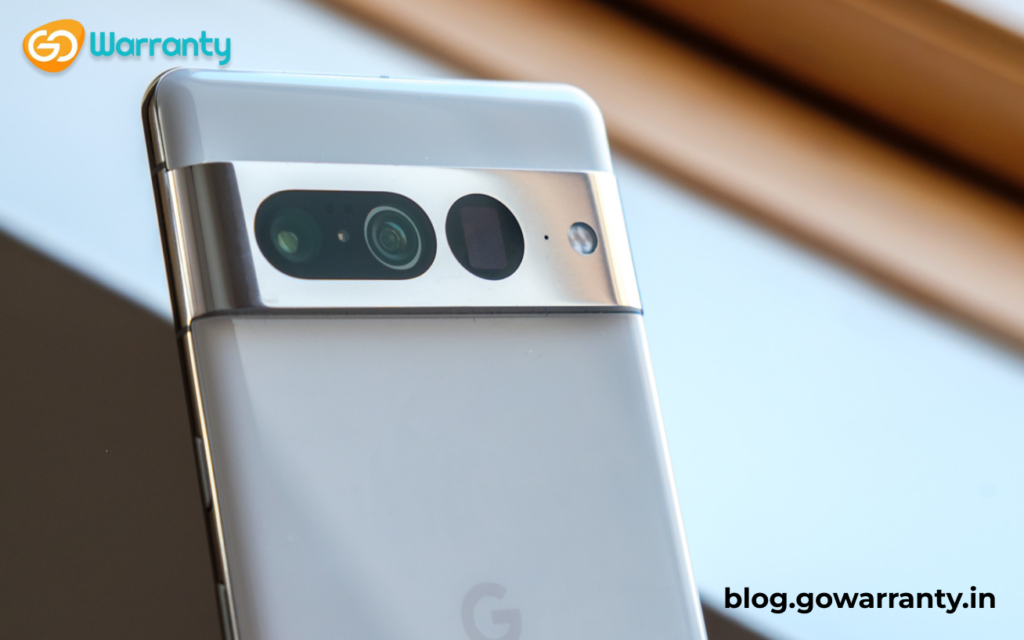The Google Pixel 8 and Pixel 8 Pro are destined to be a long time coming, given that the Pixel 7 and Pixel 7 Pro were only released in October 2022, but we’re already thinking about – and even hearing about – the next models. Everything we’ve heard so far, as well as our expert predictions for the possible release date, price, and specs, can be found below.
Then we’ve included a wish list of what we’d like to see from the Google Pixel 8 and Pixel 8 Pro, because while the Pixel 7 and Pixel 7 Pro are the best phones Google has ever made, they’re not perfect. The Pixel 7 standard, in particular, has room for improvement, but even the Pixel 7 Pro has flaws, so our wish list includes the key improvements we want from these next models.

Price and Release Date
There’s no word on when the Google Pixel 8 will be released, but the main numbered phones almost always arrive in October of their release year. Except for the Pixel 5, which was revealed on September 30, 2020 (so, almost October) and didn’t ship until October, every Pixel model outside of the A-line has been announced in October. More specificity is difficult because the dates in October have varied, but the Pixel 8 is likely to be unveiled in early or mid-October 2023, and then ship in mid or late-October, probably a week after the announcement.
We don’t know how much the Pixel 8 will cost, but the Pixel 7 and Pixel 7 Pro both cost the same as their predecessors, so Google could stick with that pricing for another year. The Pixel 8 will cost $599 / £599 / AU$999 in that case, while the Pixel 8 Pro will cost $899 / £849 / AU$1,299.
News and Leaks
We haven’t heard much about the Google Pixel 8, but there have been a few leaks. For one thing, there are reports that the Tensor 3 chipset that will power the phone is already in the works and will be manufactured by Samsung once again. However, no word on how much more powerful this will be than the Tensor G2 found in the Pixel 7.
Meanwhile, another leak suggests that the Pixel 8 and Pixel 8 Pro will be codenamed Shiba and Husky, respectively, and will have 12GB of RAM and run Android 14. The Pixel 8 has a 1080 x 2268 screen, whereas the Husky has a 1344 x 2822 screen, according to the same source.
We also know that the Pixel 8 will most likely support satellite communications, just like the iPhone 14. Hiroshi Lockheimer, the senior vice president of Android, has stated that support for this will be included in Android 14, so the Pixel 8 is likely to be the first Google phone to include it. Those screen specs are consistent with the current Pro models, but the dimensions are more in line with the standard Pixel 8, suggesting that a resolution and refresh rate upgrade is in the works for the standard model.
What we want to see
A 120Hz screen
The Pixel 7 Pro has a 120Hz screen, as you’d expect from a flagship phone, but the Pixel 7 is stuck at 90Hz.
Given that even some of the best low-cost phones now have 120Hz screens, this seems somewhat unacceptable, so we hope Google includes a 120Hz screen on both the Pixel 8 and the Pixel 8 Pro.
More Power
The Pixel 7 line is powered by the Google Tensor G2 chipset, which has a lot going for it. It is designed specifically for these phones and excels in areas such as machine learning and AI, but when it comes to raw power, the Tensor G2 falls short, performing worse in most benchmarks than key competitors such as the Snapdragon 8 Plus Gen 1 and the Apple A16 Bionic. In fact, it performed worse.
So we’d like to see the Tensor G3 (or whatever the next model is called) prioritise power so that the Pixel 8 line can compete on that front. However, we do not want this to come at the expense of the current strengths of Tensor chipsets.
Improved battery life and charging speed
Based on our testing, both the Pixel 7 and Pixel 7 Pro should comfortably get you through a day of fairly heavy use, but they won’t get you through a second day, or even halfway through a second day in most cases. So their battery life is adequate but not exceptional, and they both charge slowly, so we’d like to see improvements in both battery life and charging speed for the Pixel 8 line.
Longer-Term Support
Google has promised three years of Android version updates as well as five years of security patches for the Pixel 7 line, which is ahead of some Android phones but falls short of the number of years of support Apple typically provides with its iPhones. Since Google creates Android and uses a bespoke chipset designed specifically for the phones here, there should be no reason why it can’t support its phones for longer, so we’d like to see extended support offered with the Pixel 8.
10x Optical Zoom
The Google Pixel 7 Pro has 5x optical zoom, up from 4x on the Pixel 6 Pro, but we’d like to see a bigger jump for the next model, up to 10x like the Samsung Galaxy S22 Ultra. Having said that, we still want a shorter distance zoom – ideally 2x or 3x – to be available, so there are two distinct zoom distances available. The Google Pixel 7 Pro is already one of the best camera phones, but the Pixel 8 Pro could be even better with this upgrade.

